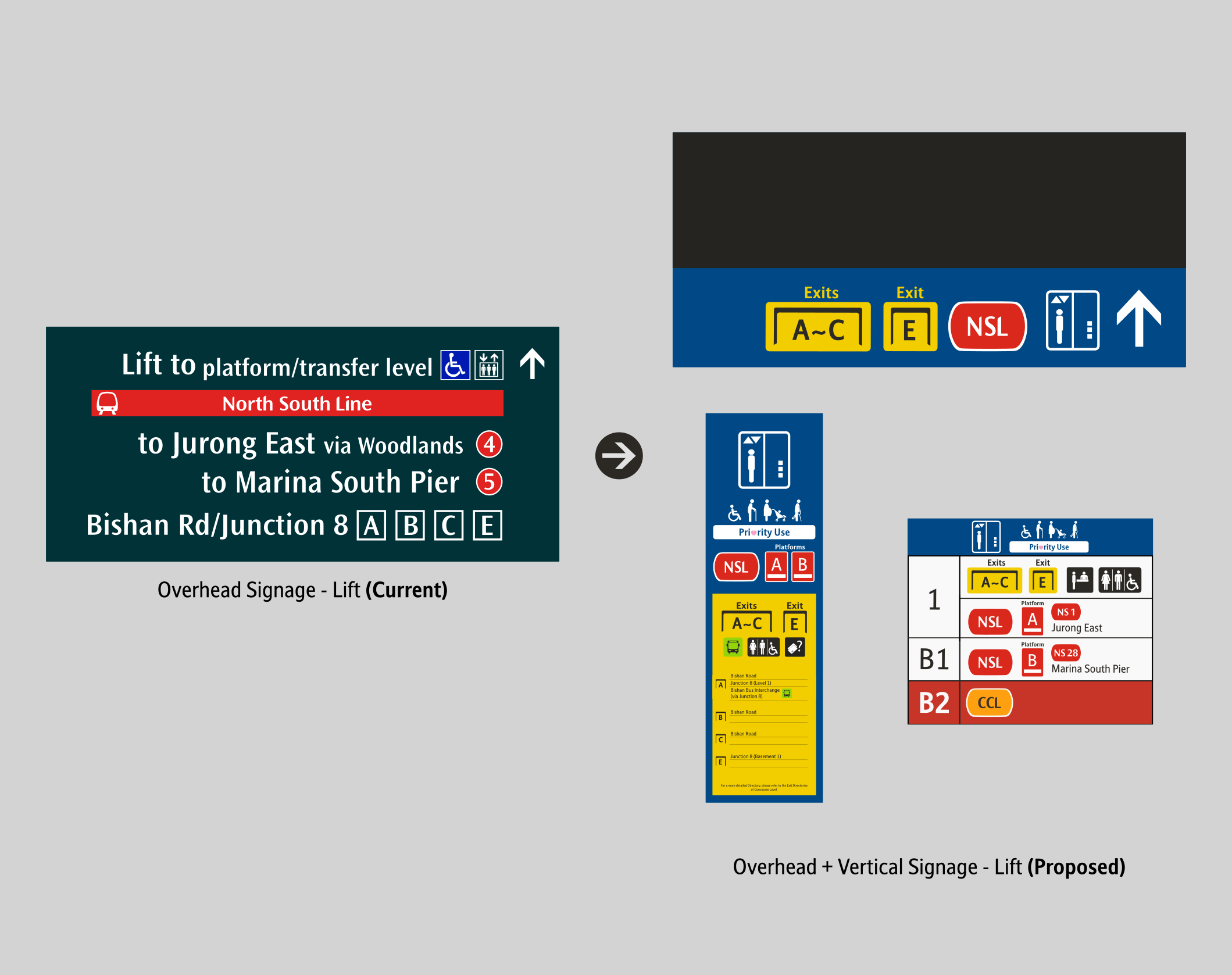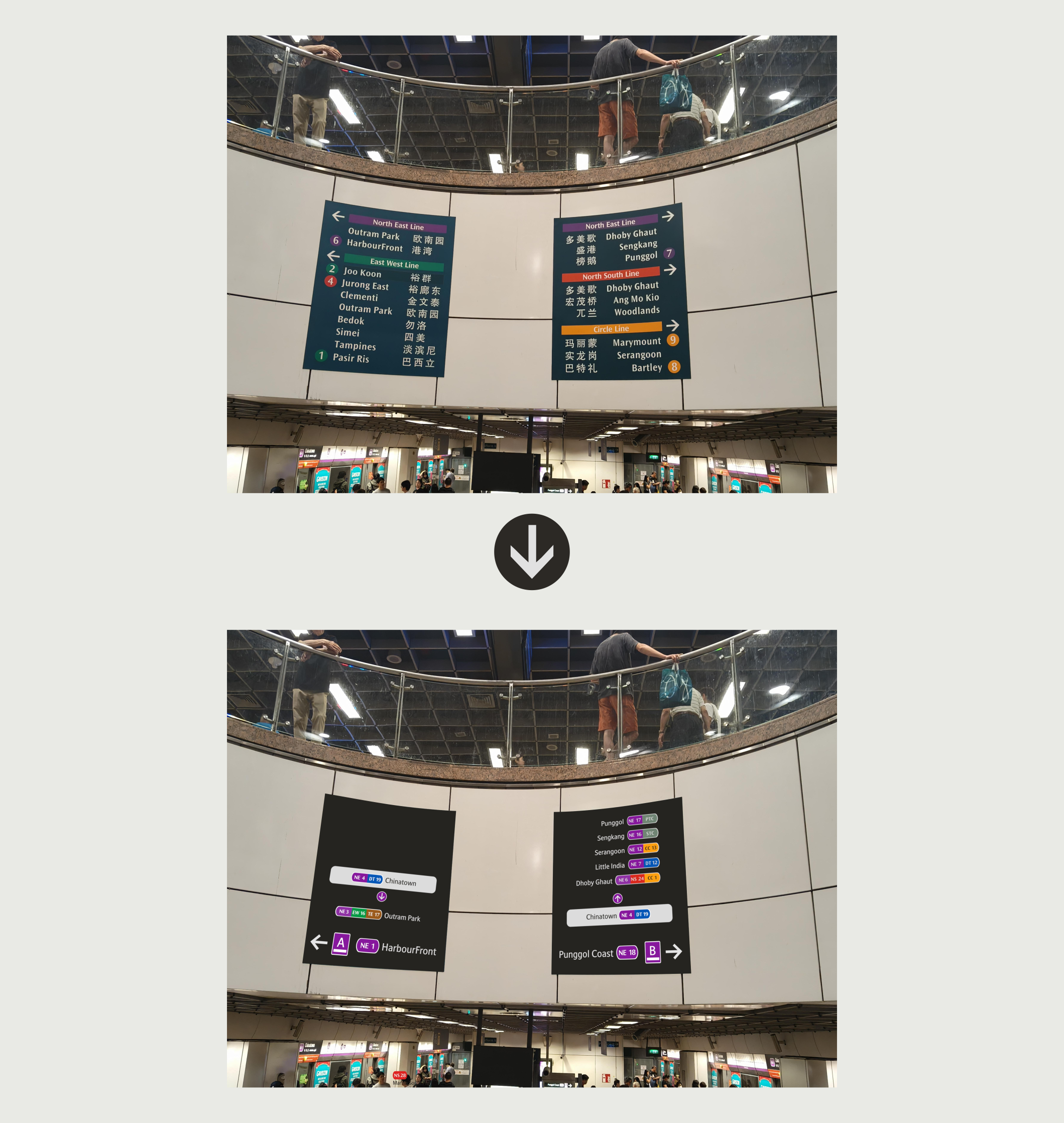Labels
From feedbacks on the ground, many commuters didn't understand what "A with a Dash below" the "Gate" meant. Those descriptions actually refers to the Platforms and Exits respectively. To make it clearer, an 'Exit'/'Platform' label has been added, and it is now mandatory to be added. Current implementations saw the labels at the top for Exits as temporary (stickered on at a later part, and not integrated into the design.)
Iconography
It's time to let the Dark Green Background retire. Previously used on backgrounds of Station Name signages, it progressively got replaced with a darker shade of Grey. The current implementation uses a combination of both Dark Green and Dark Grey, hence I have decided to only stick with just the Dark Grey colour across all signages.
Station Names on Exit
The Street Names on the Overhead signages were removed in
the New Wayfinding System. While it is understood that the
removal of the Street Names was to make the signages more
simplified, I believe there is a better way to still fit them in the
new system.
The Street Names will appear when there are only 1 or 2 exits
ahead. For multiple exits, the same principle currently being
implemented will apply here. To make up for the loss of
information, a separate wall Vertical Wall Signage will be
pasted instead.















